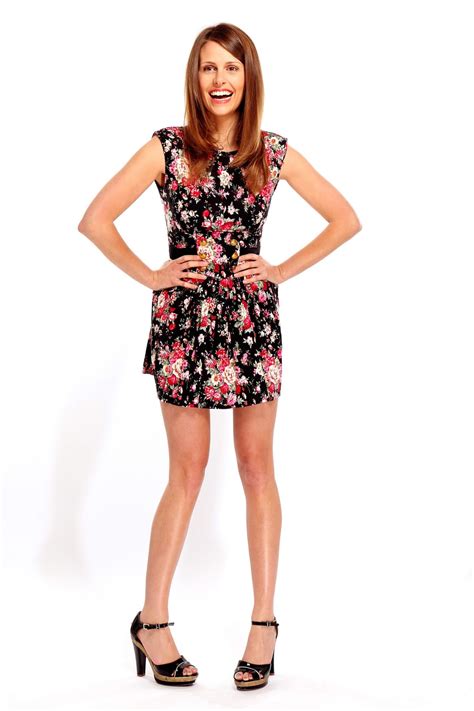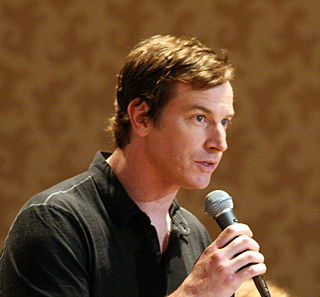A Quote by Eric McCormack
There was not an episode [on Perception] that didn't deal with some form of mental illness, either my own, or I would be the first to notice if a defendant did a certain thing that perhaps he was suffering from this. And so we got to do some really outspoken stuff for what was otherwise a crime-solving show. And it was just a really good team.
Related Quotes
Once I got interested in organized crime, and, specifically, Jewish organized crime, I got very interested in it. I have learned that, like my narrator Hannah, I'm a crime writer in my own peculiar way. Crime with a capital "C" is the subject that I'm stuck with - even Sway is about "crime" in a certain way. The nice thing about crime is that it enables you to deal with some big questioO
I was in rock music in London when it was the height of Brit pop, with The Kinks revival and Suede and Blur and Oasis, and all of those really great bands that were of a certain style. If I'd really been smart and commercially minded, I would have just got myself a blazer and some Stay Press and some Fred Perry tops, and just gone out and tried to do it like everyone else. Instead, I did this ridiculous thing of trying to do this music.
I just went into my studio and started to compile stuff. I was so happy with what was coming out that good momentum just carried over and when I would listen back to some of the riffs and some of the ideas, I was completely happy because I felt like, "wow, this was a breakthrough!" The ideas and the songs were really strong and I couldn't wait to show everybody the stuff.
One of the first TV shows that I did was this prank show. And we did a prank where we took a Michael Jackson impersonator and I played his publisher.I was just really good at my job.We were just about to go onto the field to throw out the first pitch just two weeks after 9\11. It was a huge security breach, and we made a lot of cops look really dumb. Producers of the show thought it would be really funny and I didn't think about it because I was a young dumb comedian. So I got arrested and went to jail in the Bronx, and now I can never go back to Yankee Stadium.
I really liked Quentin Blake, who did all of Roald Dahl's stuff. I don't think I really got Quentin Blake as a kid, but as I grew older, I really appreciated the kind of knowledge and the skill that went into those seemingly effortless drawings, and I really wanted to capture some of that in my own work.
I don't know the history of hating communism in America. I've always been interested in it, and I've thought about studying it in the past, but I've just looked into other topics first. That certainly sounds like a good topic that we could do on the show. I think it would be really interesting. We would just need to spend a lot of time researching it, getting into it, running down that topic. So I'll take that as a really good pitch for a future episode.
Being a creative person is a really personal process so there is no one-size-fits-all advice, that's kind of the first thing I'd say. Because everybody's goals are different. Everybody's talents are different. Some women that I'm talking to want to create a television show. Some women want to be a director. They want to use comedy in different ways, and I find that really fascinating. The main thing I would say is, start! Just do it. Keep going. When people come at you with the negativity and the nos, you've got to ignore it. Push through.
You know, some of the action stuff, I tend to have a pretty good sense of humor about it. Even when I direct and have a lot of pressure, it teaches me to laugh at stuff. I think that comes also from sports, from combat sports, where you've got to learn to laugh at it and take it in stride. Otherwise, you just can't deal with it.



































